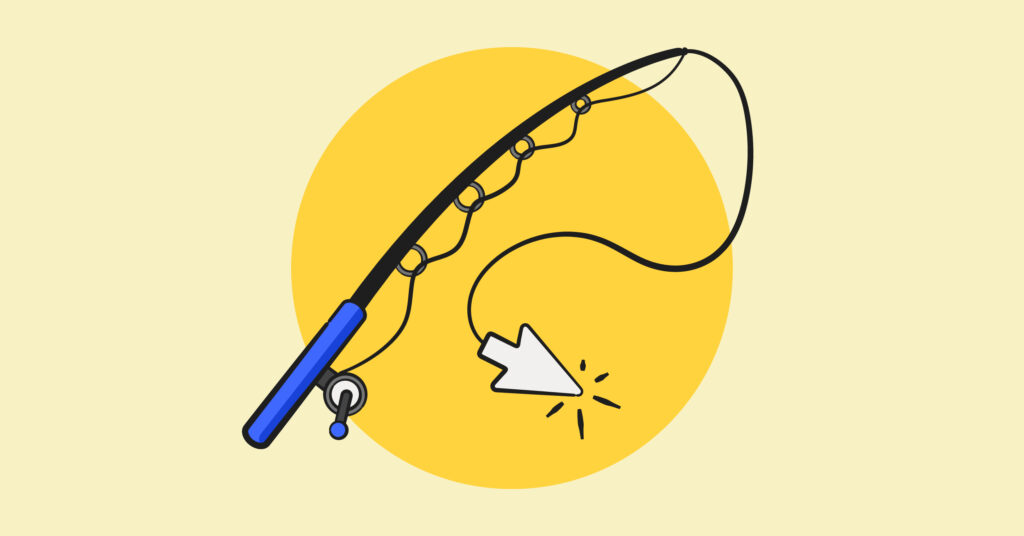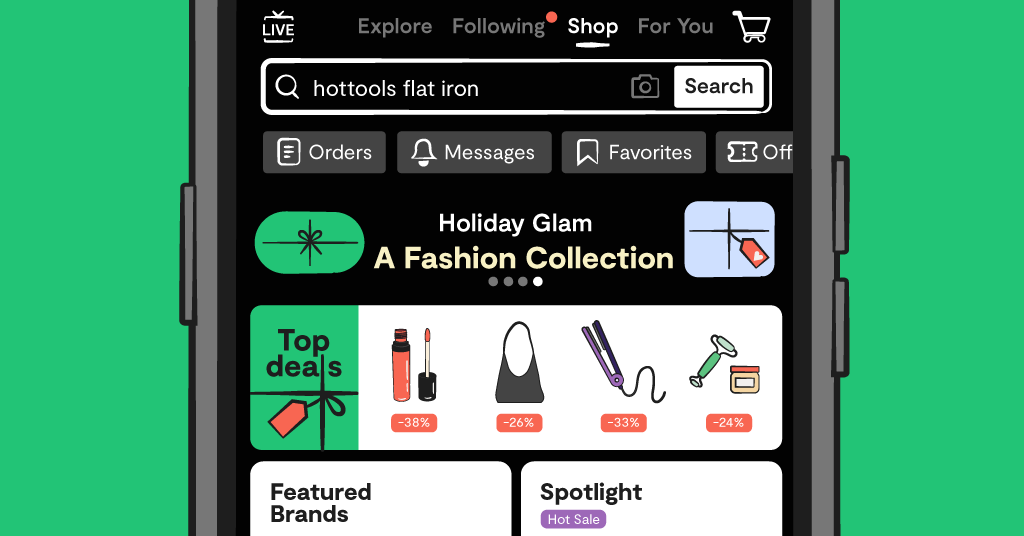
**Please note: This blog post was updated on May 16, 2024.**
Chances are, you’ve been scrolling the internet on your phone or computer when you come across something that grabs your attention. It could be a headline or an image that seems to stand out for some reason. Without too much hesitation, you move your mouse or finger over it and…click!
It takes just a fraction of a second for your finger to touch down and make that click. It may not seem like a big deal, but online marketers spend a lot of time setting traps that encourage you to do just that. They want you to click on their links because it’s how they make money. In some cases, you don’t have to do anything but click to make their paycheck a little fatter.
What we’re talking about is something known as clickbait. What is clickbait, you may ask? Even if you don’t know what it is, you’ve most likely seen it a few thousand times, if not more. Let’s talk about what it is, how it can impact your kid online, and how to explain it so your child knows how to recognize it.
What is Clickbait?
So, what is clickbait? Clickbait is any type of online content designed to convince internet users to click a link. The link could be attached to an eye-catching image or an attention-grabbing line of text. Oftentimes the click is more important than whatever the link is actually trying to say or do.
Here are some examples of clickbait in action:
- A social media account promotes a blog post with a shocking title that grabs your attention — something like “You won’t believe what happened when I tried this life hack!” When you click the link, you end up reading a blog that has nothing to do with a great life hack.
- You see an interesting social media quiz that promises to read your fortune for the next month. You just have to click a link and then enter your name, birth date, and email address. You receive a generic fortune in exchange, and the marketer starts sending you spam messages to your email account daily. Even worse, they may use your birth date and name to attempt identity theft.
- You receive an email from a company you trust announcing a Facebook Live broadcast that hints about something catastrophic about to happen in the world (“Your worst fear is about to happen – click here to find out how you can be prepared”). So you click the link in the email to watch Live. You find out nothing catastrophic is about to happen, but the company is launching a new product they want you to buy.
How Does Clickbait Work?
Ever wonder how someone makes money off your clicks, anyway? Let’s take a look…
- First, someone with a web page or social media account attaches their link to some kind of clickbait, designed to entice you into clicking it.
- Then, unsuspecting people (not you, since you’re reading this blog post) click the link to learn more, only to find out the webpage or social media account is not what they’re actually interested in. For this person, it simply feels like a few minutes wasted before moving on to other parts of the internet.
- For the person that created the content, however, they just received some type of compensation for that click and every other click the post received. In some cases, they’re earning ad revenue for getting people to click ads on a website. In other cases, if the website asks for some personal information, they’re collecting that data in order to sell to advertisers.
You might be asking yourself, “Don’t all businesses want people to click their links? Isn’t all advertising technically clickbait?” The answer is: yes and no.
Legitimate businesses will use certain strategies to draw people to their websites. Their ads clearly tell you what they're selling and clicking the link will give you more information. That’s honest advertising.
Clickbait is different because clicking the link does not actually deliver what was first promised. In most cases, there’s not even a legitimate business behind it. Either the content is simply not there or it promotes some deceptive purpose, all to help someone make a few pennies.
What Does Clickbait Mean for Your Child’s Online Security?
So, what’s the big deal? Does clickbait really pose a danger to kids online?
Definitely. Here’s how:
- Viruses and malware – Links are sometimes connected to malicious websites or phishing software that can infect your computer or mobile device. Children may click these links without realizing they added dangerous software to their phones or computers.
- Identity theft and fraud – Kids can be tricked into providing personal information without realizing they’re on a scam website. They may give out passwords, addresses, names, birth dates, and other information that scammers can use for identity theft and fraud.
- Deception and misinformation – The intent behind some clickbait is to spread information that is inflammatory, negative, or false. Sometimes there are political motivations, but some scammers simply enjoy spreading false narratives. Children may struggle to understand what they’re viewing or why it’s harmful.
- Inappropriate content – Clickbait could very easily link to all sorts of adult content, including profanity, sexual content, drug/alcohol content, and more.
- Wasted time – If nothing else, clickbait encourages pointless scrolling and a never-ending consumption of content. If there isn’t a particular purpose, like education or connecting with friends, there’s no need for kids to get sucked into the spiral of clickbait.
Tips for Talking to Your Child About Clickbait
The best way to keep your kid safe from clickbait is to have a conversation with them. Now that you have a clear understanding of clickbait, all you need to do is tell them what you’ve learned. You could even pull out your phone and find some examples of clickbait together to get the point across.
It’s also important to remember that kids are going to be more vulnerable to clickbait than adults. They don’t always have the best impulse control and that’s exactly what online marketers are looking for. But explaining the motives of these marketers to your kid can go a long way when they realize not everything they see online is in their best interest.
Last but certainly not least, make sure your kid knows what information they should never give out online – no matter how cool the website or how believable the sales pitch is. Stress the importance of not giving out personal information like home address, phone number, birth dates, bank logins, and family member information. Another good rule of thumb is to have your kid always ask permission before entering any information online.
The Simplest Way to Keep Your Kids Safe Online
One surefire way to keep the danger of clickbait at bay is by blocking websites that contain harmful content. The best way to do that is to use Bark. Our app offers website blocking and content monitoring along with real-time alerts to help you protect your child from clickbait and much more.
Read more
Bark helps families manage and protect their children’s digital lives.





